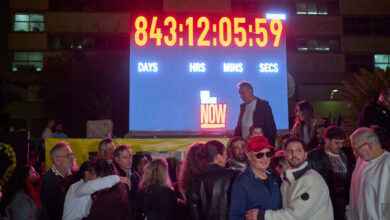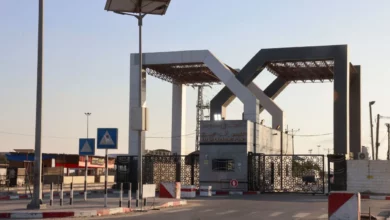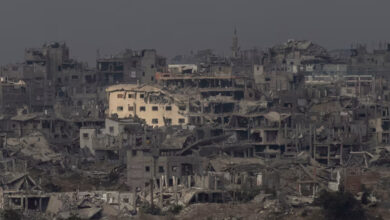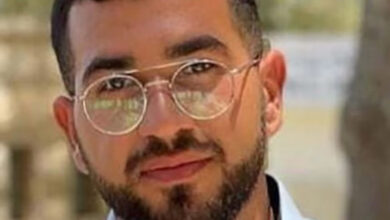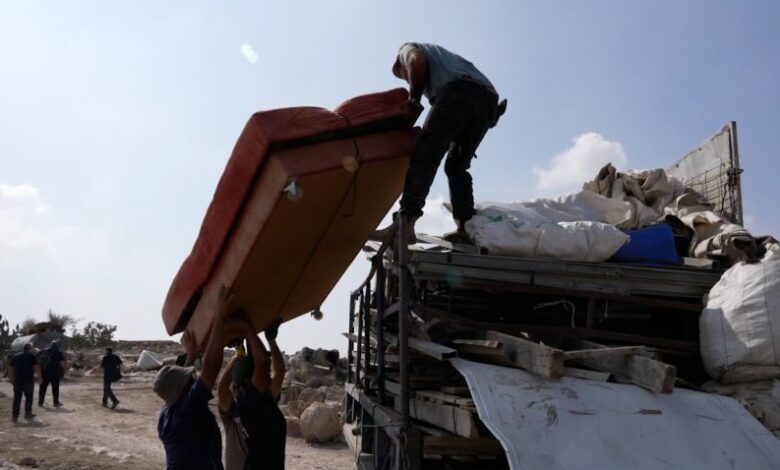
The journey should take 25 minutes by road. But this is the occupied West Bank. Nothing is ever simple here.
“We wait for the bus and see if it comes. If it doesn’t come, the checkpoint is closed. Right now, it’s closed. But it may open later. Or maybe it won’t,” Handal told CNN, standing on the side of the road with a group of other workers.
As a Palestinian resident of the West Bank, Handal needs a permit to enter Jerusalem. He does have one – but whether he can make it to work depends on his ability to get through at least two Israeli checkpoints.
With Israel at war, he says this process has become a nightmare.
After Hamas launched its terror attack on Israel on October 7, killing more than 1,400 people and kidnapping some 240 others, Israel stepped up its security measures and began severely restricting the freedom of movement of Palestinian residents of the West Bank.
CNN has asked Israel’s Coordinator of Government Activities in the Territories (COGAT) for comment on the increased restrictions, but has not received a response.
Israel controls all entry and exit points to the West Bank through roadblocks and checkpoints which are staffed by soldiers and armed police. The security forces have always had the ability to close these checkpoints without warning but, since October 7, the closures have been more frequent and have lasted longer, residents and human rights watchdogs say.
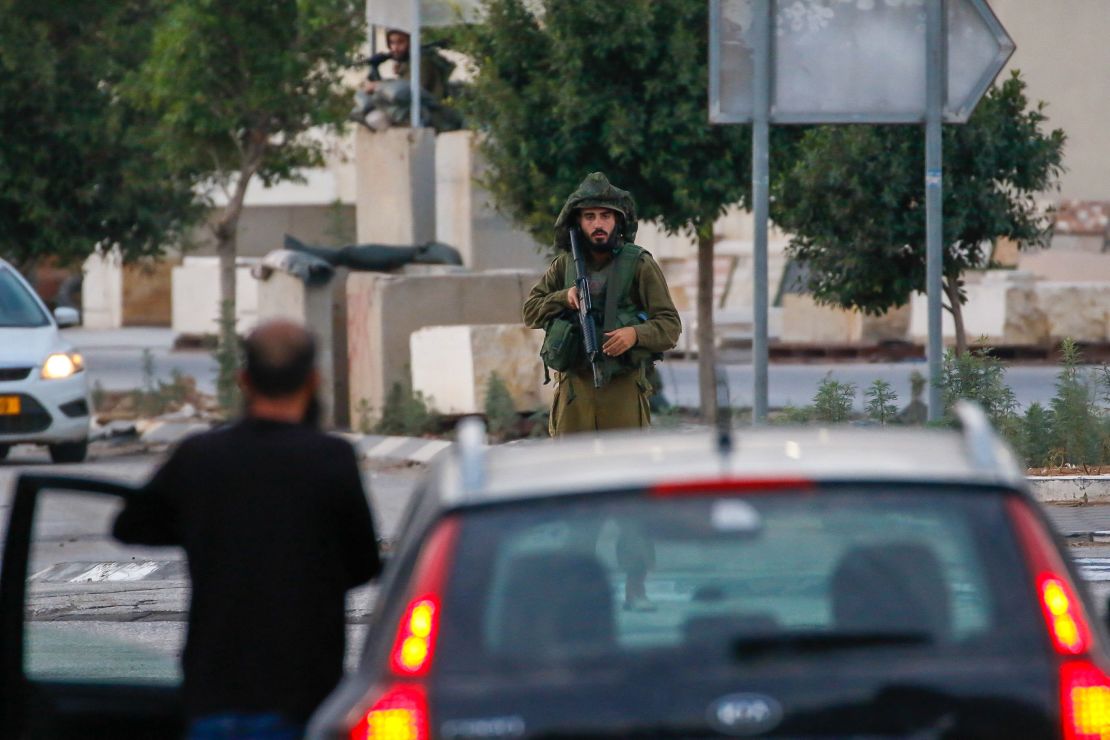
For Handal and the tens of thousands of West Bank Palestinians who need to get to Jerusalem for work, school, to go to a doctor or to visit family, this means daily uncertainty.
“It puts you in a position where you can’t even tell someone ‘I’ll meet you tomorrow,’ because you don’t know what’s going to happen,” said Mohammad Jamil, an Arabic teacher from a village near Hebron.
Jamil told CNN his son Ibrahim had missed two days of school in the past two weeks because the so-called Tunnels Checkpoint near Bethlehem was closed. Ibrahim, who is attending an elementary school in Jerusalem, said he didn’t mind. School is boring, he said, laughing.
But while Ibrahim might be relieved when he misses school, his father is growing more exasperated by the day.
“There is no future here. No solution,” he said.
Ibrahim is a resident of Jerusalem, where he lives with his mother, an Israeli citizen. But Jamil is a Palestinian from the West Bank, which means he can’t come to visit Ibrahim as often as he’d like to. He lives and works in the West Bank and has a family visit permit to enter Jerusalem to visit Ibrahim – but it onlyallows him to go five days every three months.
Instead, Ibrahim comes to stay with him in the West Bank two days a week – an arrangement that Jamil says has become much more complicated since the war began.
New restrictions on movement can come into effect suddenly and without explanation, so people who need to move around for work must be more flexible and always leave plenty of time to spare.
“We are used to this. We live under occupation,” Handal said. Still, the complicated commute that can sometimes involve long waiting times, unexpected closures of the checkpoints and interrogation from Israeli security forces is well worth it to Handal. Average daily wages in Israel and Jerusalem are more than double what people can earn in the West Bank, according to the International Labour Organization.
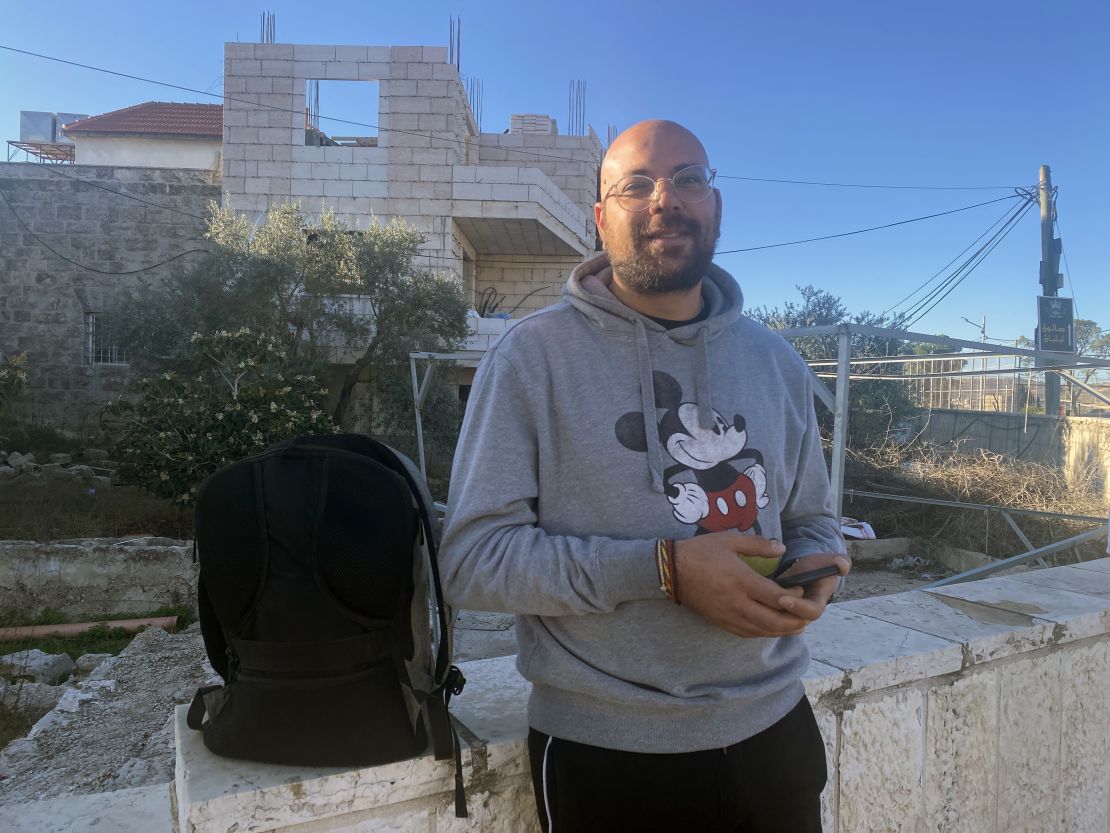
Israel has occupied the West Bank since seizing the territory from Jordanian military occupation in 1967. In the early 1990s, under the Oslo Accords peace agreements, the West Bank was divided into three distinct zones: A, B and C.
Area C, which comprises about 60 percent of the West Bank, is fully Israeli-controlled and forms one continuous territory. Area B is under the joint control of Israel and the Palestinian Authority, while Area A is wholly within Palestinian control. Each make up about 20 percent of the West Bank.
Cities and villages in areas B and A are often isolated from each other, which means Palestinians wishing to go from one to another may have to pass through areas that are fully controlled by Israel.
This can prove difficult or sometimes impossible.
An Israeli checkpoint on the road that connects Handal’s neighborhood in Bethlehem with the main road out of the city has been closed to cars for at least a month. To leave it, he needs to take a taxi or drive to the checkpoint, cross the barrier on foot and then continue his journey in a different vehicle.
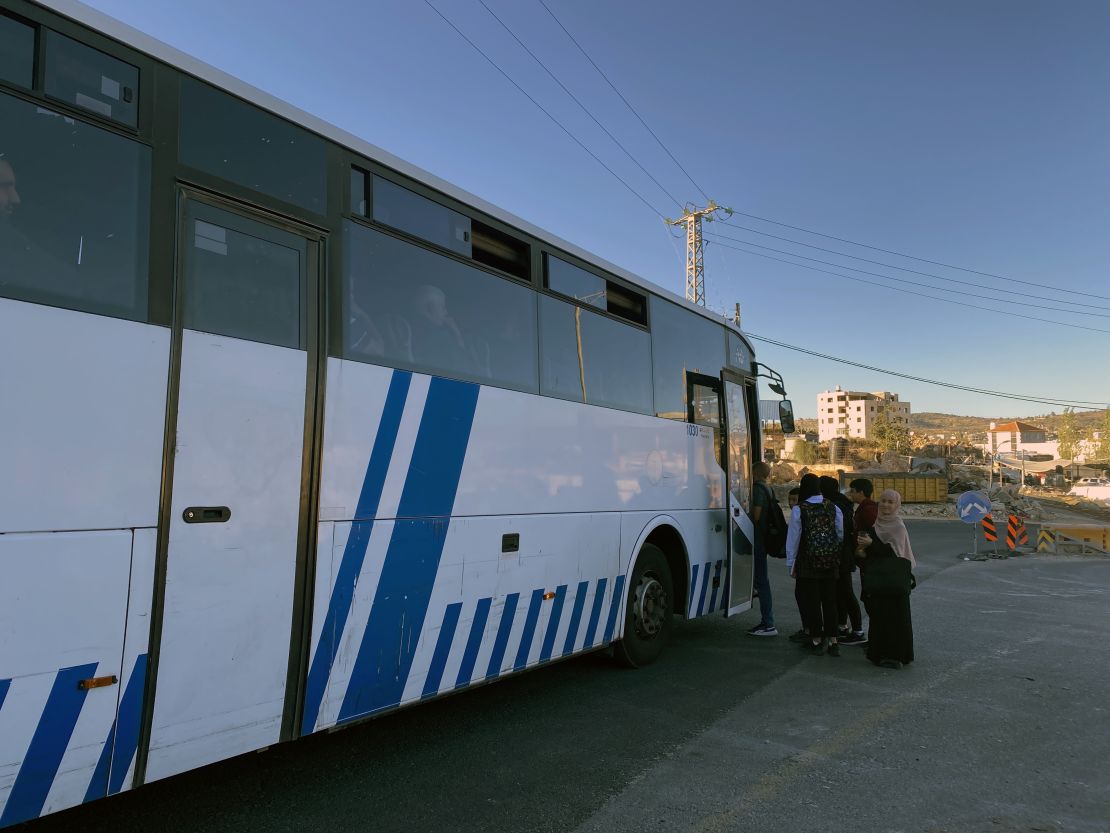
As part of the Oslo Accords, Israel agreed to gradually transfer control over the West Bank to the Palestinian Authority, but that has not happened. Instead, dozens of Israeli settlements have been built in the West Bank, encroaching into land that Palestinians, along with the international community, view as territory for a future Palestinian state.
Approximately 500,000 Israeli Jewish settlers now live in the West Bank, according to Peace Now, an Israeli group that advocates for peace and monitors settlements. Many of these settlements are heavily guarded, fenced-off areas that are completely off limits to Palestinians.
Most of the world considers these settlements illegal under international law and Israel has been criticized for allowing their expansion – and, in some cases, supporting them with tax breaks and state-funded security. Israel views the West Bank as “disputed territory,” and contends its settlement policy is legal.
The areas around these settlements have always been prone to violence, but the situation has worsened in recent months.
More than 170 Palestinians have been killed in the West Bank since October 7, according to the Palestinian Ministry of Health in Ramallah. That’s more than were killed across the whole of 2022 by Israeli forces, according to UN figures.
Most died during clashes with security forces and raids by the IDF. According to the IDF, some of them were Hamas and Jihad militants, while others engaged in clashes.
At least eight Palestinians were killed by settlers, according to the UN Office for the Coordination of Humanitarian Affairs.
The spiralling violence has prompted international outcry, including from Volker Turk, the UN high commissioner for human rights.
“I appeal as a matter of urgency for Israeli authorities to take immediate measures to take steps to ensure the protection of Palestinians in the West Bank who are being on a daily basis subjected to violence from Israeli forces and settlers, ill treatment, arrests, evictions, intimidation and humiliation,” Turk said.
According to the UN, since October 7, nearly 1,000 Palestinians from at least 15 herding communities have been forced from their homes by settlers.
“In the context of the coercive environment they live in, the displacement of these communities may amount to the forcible transfer of the population, which is a grave breach of the Fourth Geneva Convention,” Turk said, adding: “Continued, widespread impunity for such violations is unacceptable, dangerous and it is in clear violation of Israel’s obligation under international human rights law.”
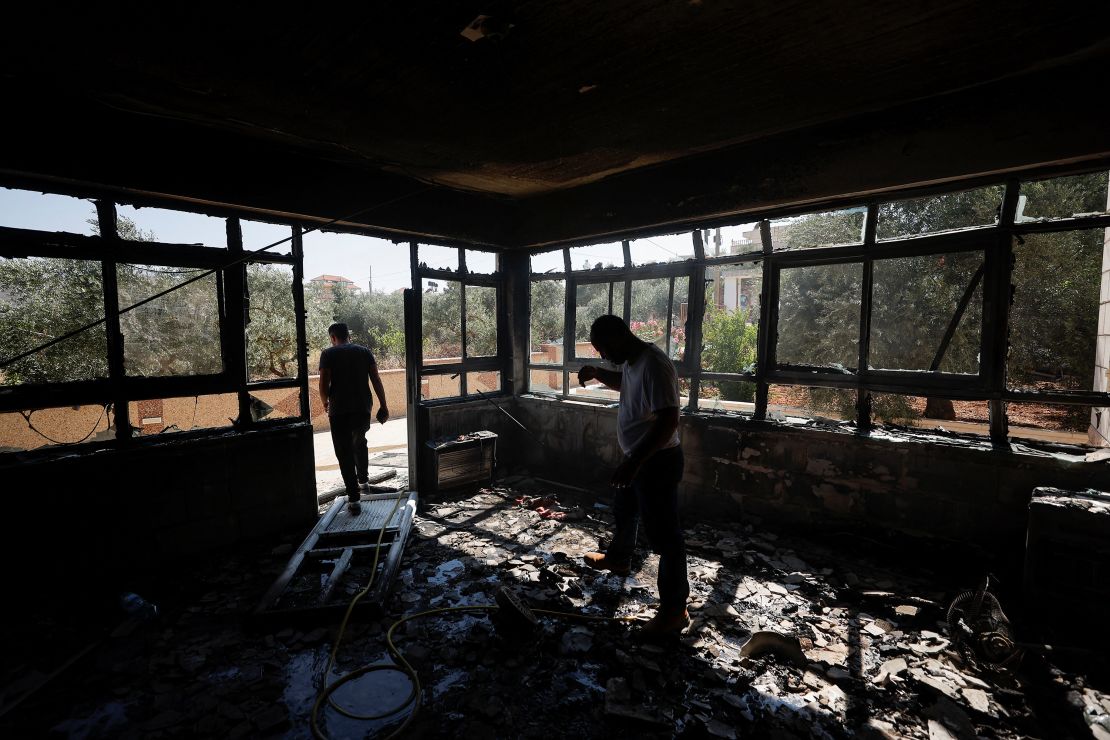
A group of 30 human rights and civil society organizations in Israel published a joint letter last month, alleging the settlers have been “exploiting the lack of public attention to the West Bank, as well as the general atmosphere of rage against Palestinians, to escalate their campaign of violent attacks in an attempt to forcibly transfer Palestinian communities.”
US President Joe Biden also weighed in on the issue. A staunch supporter of Israel and its military response to the Hamas attacks, Biden nonetheless condemned “extremist settlers” from Israel attacking Palestinians in the West Bank.
Speaking about the violence by settlers, the office of Prime Minister Benjamin Netanyahu issued a statement on Wednesday, saying: “There is a tiny handful of people that do not represent this public and that take the law into their own hands. We are not prepared to tolerate this. We are not prepared to accept this. We will take all action against them.”
At the same time, groups of Palestinians have regularly clashed with Israeli police at checkpoints and in other tense areas, often throwing stones and setting fires.
The increased violence is forcing many West Bank residents to stay at home. Handal told CNN he had barely left home in the first two weeks of the war.
Jamil said he always drives his son around and makes sure he gets onto the school bus safely, because settlers have on occasion come to the area and thrown rocks at passing cars.
After a few long hours of waiting, checking with friends on updates and wondering what would happen, Handal managed to get to work on Monday.
The bus never turned up, but he found a workaround. “I have a friend from Jerusalem who took me with him. At the border they asked for my ID and permit, and they let me in. I made it – by chance,” he said.
Paid by the hour and with two young children at home, he said he couldn’t afford to sit a day out.

